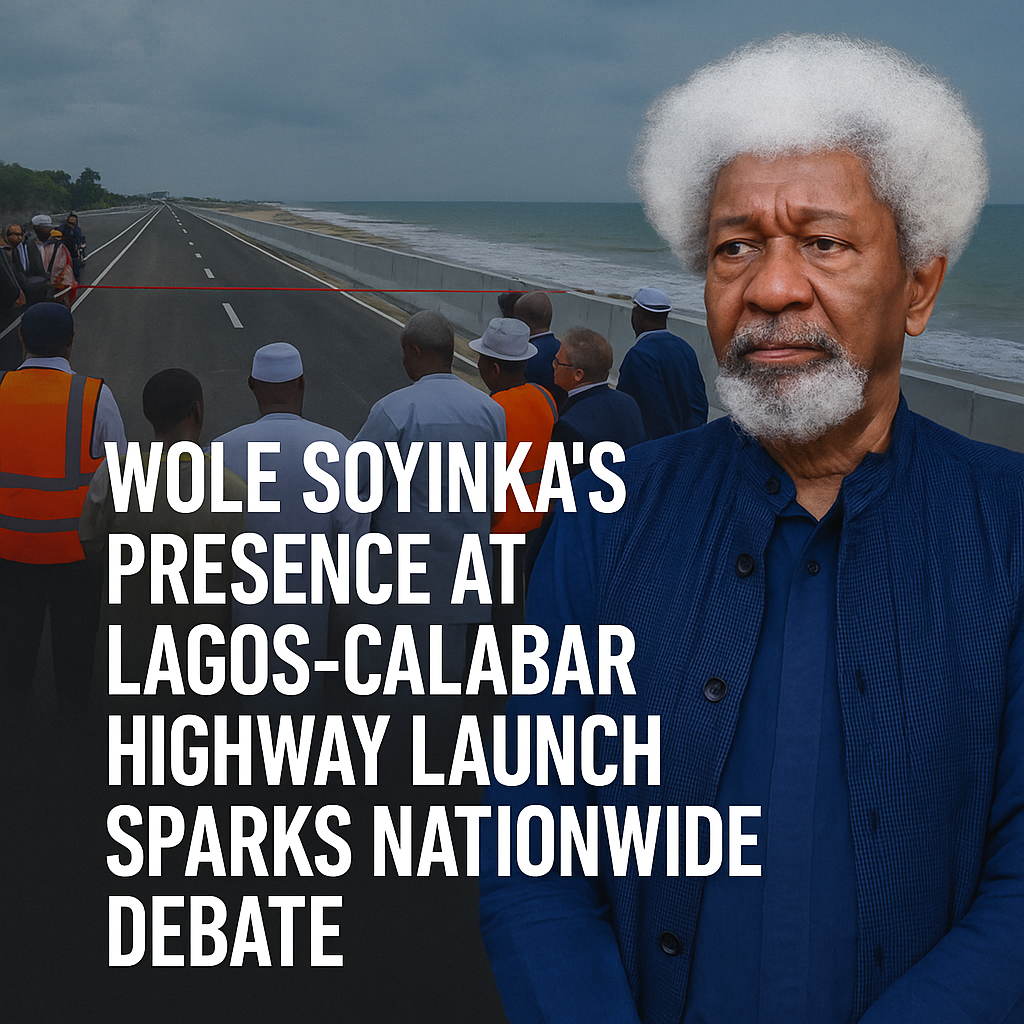On May 31, 2025, Nobel Laureate Professor Wole Soyinka attended the commissioning of the first 30 kilometers of the Lagos-Calabar Coastal Highway, a significant infrastructure project under President Bola Tinubu’s administration. The event marked the inauguration of the initial segment of the planned 700-kilometer highway, aimed at enhancing connectivity between Lagos and Calabar.
During the ceremony, Professor Soyinka expressed his enthusiasm for infrastructural development by stating, “I’m a sucker for new roads.” His presence and remarks underscored his support for initiatives that promote national development and improved transportation networks.
However, Soyinka’s attendance at the event has drawn criticism from various quarters. Some individuals have accused him of political bias, suggesting that his presence implies endorsement of the Tinubu administration’s policies. Critics argue that the Lagos-Calabar Coastal Highway project has been mired in controversies, including allegations of inflated costs, lack of transparency in the awarding of contracts, and insufficient environmental impact assessments.
Former Vice President Atiku Abubakar has been vocal in his criticism of the project, describing it as rushed and alleging that it was awarded without competitive bidding. He also raised concerns about potential conflicts of interest, pointing out that the construction company involved has ties to associates of President Tinubu.
Furthermore, reports have emerged about the demolition of businesses and homes to make way for the highway, leading to economic hardships for affected communities. Environmentalists have also raised alarms about the potential ecological impact of the project, particularly concerning sensitive coastal ecosystems.
In light of these controversies, Soyinka’s participation in the commissioning ceremony has been interpreted by some as tacit approval of the project’s execution, thereby fueling accusations of political partiality. Supporters of Soyinka, however, argue that his presence was a gesture of support for infrastructural development and should not be construed as an endorsement of any political agenda.
The Lagos-Calabar Coastal Highway is envisioned to bolster economic activities, facilitate trade, and improve accessibility along Nigeria’s southern corridor. The project’s commencement has been met with both commendation and scrutiny, reflecting the diverse perspectives on large-scale infrastructural endeavors in the country.
As the debate continues, Soyinka’s involvement in the project underscores the complex interplay between cultural figures and political developments in Nigeria. It also highlights the broader discourse on the role of public intellectuals in national development and the importance of transparency and accountability in executing large-scale infrastructure projects.
If you enjoyed this article, click here to read more informative posts, also check us out on Instagram for fun and engaging content.
Disclaimer: The opinions, views, and information expressed in this article are those of the author and do not necessarily reflect the official policy, position, or views of iNaijanow. The company assumes no liability for any errors, omissions, or damages arising from the use of this information.
















